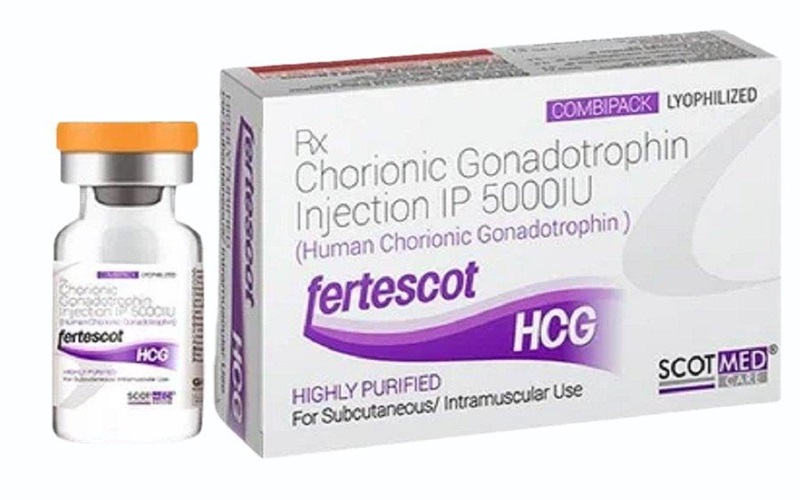
hCG is a dimer composed of a unique 145 amino acid beta-subunit and a 92 amino acid
alpha-subunit. The alpha-subunit is identical to those found in luteinizing hormone
(LH), follicle-stimulating hormone (FSH), and thyroid-stimulating hormone (TSH). The
genes for the alpha and beta-subunits are located on different chromosomes (chromosomes
6 and 19, respectively). After synthesis, the alpha and beta-subunits bond noncovalently
before being released into the bloodstream.
In males and nonpregnant females, normal hCG levels are less than 2 IU/L. For pregnancy detection in females, hCG levels indicate the following: